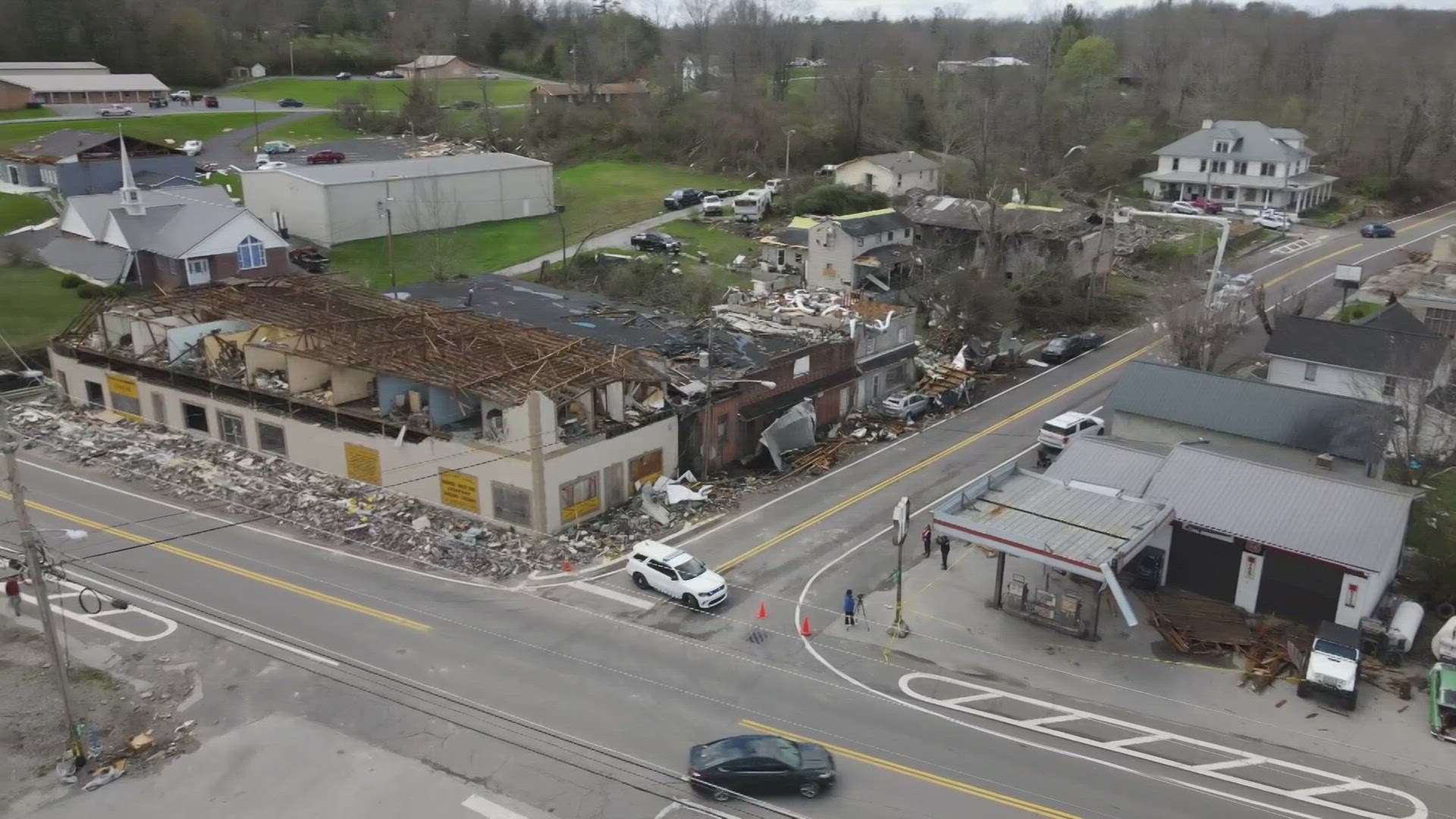SUNBRIGHT, Tenn. — A tornado recently tore through the small Sunbright community, destroying some buildings and sending debris flying. Days after the storm struck, the small community learned that it did not meet the damage threshold to qualify for aid from the state. It is not receiving federal support either.
Weeks before the tornado, bills were introduced in the state legislature that could reignite hope for the Sunbright community. SB 2082 was introduced by Sen. Jack Johnson (R - Franklin), and is otherwise known as the "Resilient Tennessee Revolving Loan Fund Act."
In effect, the bill would create a loan program that receives money from the federal STORM Act to be lent out to people impacted by disasters. Loans through the fund could have a maximum interest rate of 1%, but would also be available to people who meet the program's qualifications.
The loans would be available to people impacted by severe storms, wildfires, droughts, earthquakes, flooding, shoreline erosion and high water levels.
The bill creating the loan program passed the Senate and the House, and was signed into law by Governor Bill Lee. It goes into effect on July 1.
Sen. Ken Yager (R - Kingston) is cosponsoring the bill and also said he is pursuing initiatives to help with recovery efforts in Sunbright.
Another bill he's cosponsoring, SB 1660, would create the "State Disaster Relief Program." It would allow county emergency management agencies to ask for grants from the state to help offset the costs of responding to a disaster.
To be eligible for funds, the county executive would need to have declared a state of emergency and damages from it must not reach the threshold for federal disaster relief. The money could be used to repair roads, buildings, utilities or other infrastructure, to remove debris, to protect the public and to pay for emergency measures.
Grants would be limited to $250,000. The bill will be discussed in a Senate committee on April 15.
“Unfortunately, the destruction does not meet Federal Emergency Management Agency standards to receive funding,” said Yager in a press release. “Given the small population of Sunbright and its limited resources, there is growing concern regarding recovery efforts due to lack of funding, and I am doing everything I can on the state level to give Sunbright more resources to build back their community."
He said he put together a proposal asking for a state appropriation to help Sunbright recover. If approved, he said the city and county would get $5,000 from the state to help cover costs associated with the tornado.
"I've filed amendments to the budget, to provide funding to the city of Sunbright and Morgan County for any expenses the city or county may have incurred because of the tornado," he said.
He also said he is working on an initiative to implement a sales tax break for cleanup efforts in Sunbright.
"Details are still being discussed among different government agencies, but Yager is committed to finding solutions before the General Assembly adjourns," the press release said.
A local farmer in Sunbright said while Yager's proposals may be well-intentioned, he didn't know how it would impact the community. The damage in the small community of Sunbright did not cross a financial threshold to warrant support from the state or from the federal government, and now most people there are relying on insurance for help.
"It doesn't do anything to address folks that are trying to recover personally from something like this," said Wayne Miller, a member of the Sunbright community. "It's hard for me to understand, there couldn't be some type of mechanism put in place with a formula that evaluates people's incomes, people's ability, people's expectations to recover after a storm that there'll be some type of relief.
In the federal Appalachian Region Commission's June 2023 report, Morgan County was listed as an "at-risk" county with a per capita income of $25,015 and a 21.8% poverty rate and a 4.9% three-year average unemployment rate. It is one of 27 at-risk counties across the state.
"Next time, wherever the next time is, whether it's Morgan County or Giles County or another impoverished area, we're about right back in the same situation," said Miller.

